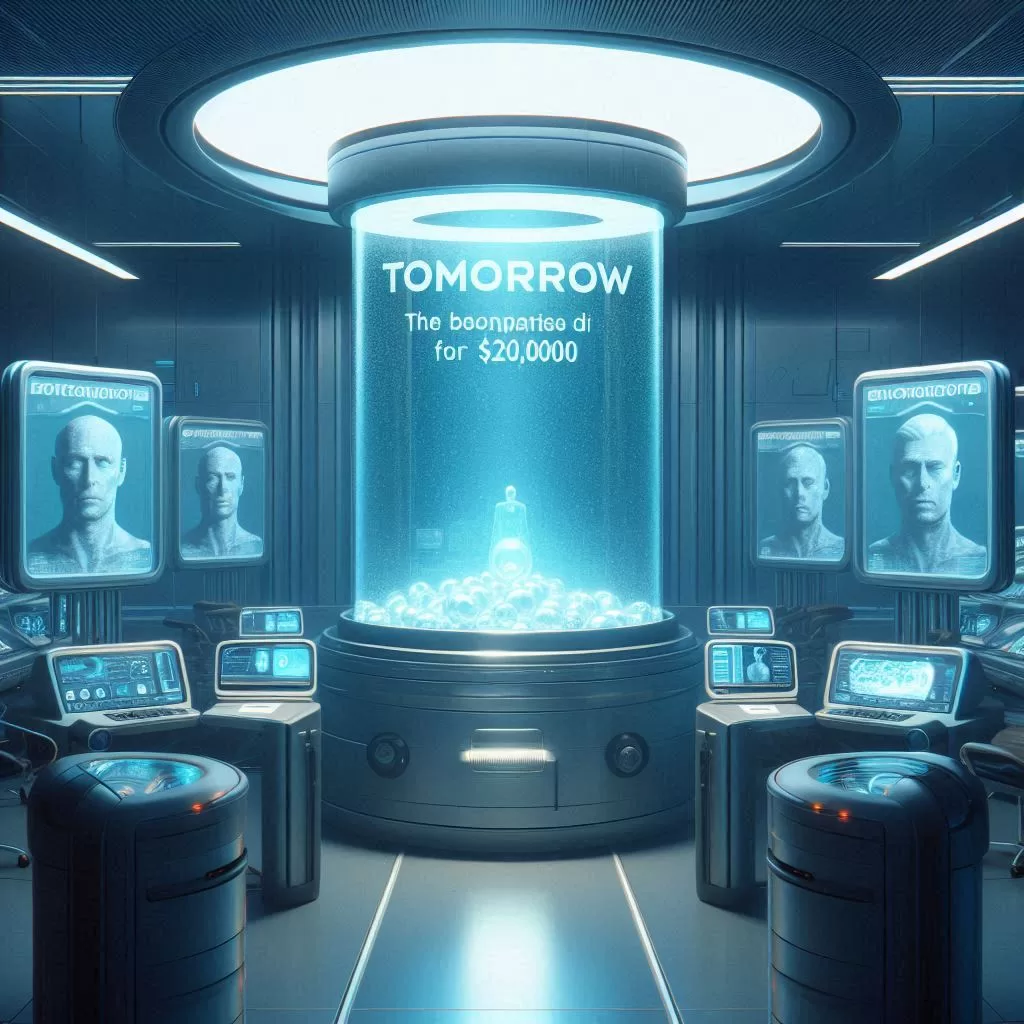- Introduction: A small ambulance, adorned with a prominent orange stripe and dangling wires, is parked in central Berlin. This unassuming vehicle is part of Tomorrow.Bio, Europe’s pioneering cryonics lab offering a shot at a second life for the price of a high-end sports car.
- Service Offering: Tomorrow.Bio’s mission is straightforward yet ambitious: to freeze patients post-mortem with the vision of reviving them in the future. This futuristic service comes with a hefty price tag of $200,000 (£165,000).
- Founder’s Background: At the helm of Tomorrow.Bio is Emil Kendziorra, a former cancer researcher. Frustrated with the slow progress in cancer research, Kendziorra pivoted to cryonics, believing it holds more immediate promise for extending human life.
- Cryonics History: The concept of cryonics isn’t new. The world’s first cryonics lab opened nearly half a century ago in Michigan. Since then, the field has been mired in debate, splitting opinion between staunch advocates and firm skeptics.
- Kendziorra’s Vision: Kendziorra is optimistic about the future of cryonics. He notes a growing interest in the procedure, with more people willing to invest in the possibility of life after death.
- Current Clients: To date, Tomorrow.Bio has cryopreserved a modest number of individuals: “three or four” people and five pets. These early adopters are betting on science’s ability to eventually bring them back.
- Future Plans: Looking ahead, the company plans to broaden its reach. By 2025, Tomorrow.Bio intends to expand its operations to cover the entire United States, hoping to appeal to a wider audience.
- Science and Realism: However, the reality of cryonics is still far from certain. No one has ever been successfully revived following cryopreservation, and the technical challenges remain significant.
- Brain Damage Risks: One of the major concerns is the potential for severe brain damage upon revival. The complex structures of the human brain pose a formidable challenge for scientists attempting to restore them.
- Scientific Skepticism: Clive Coen, a professor of neuroscience at King’s College London, is particularly critical of cryonics. He describes the notion as “preposterous,” pointing out the current lack of evidence supporting the viability of restoring such complex brain structures.
- Technological Promises: Some proponents believe advances in nanotechnology and connectomics might eventually bridge the gap between theory and practice. These technologies involve manipulating materials on a nano scale and mapping the brain’s neural connections, respectively.
- Overpromises: However, Coen argues that these claims are overly optimistic. He cautions against the overconfidence that such technologies will seamlessly solve the immense challenges cryonics faces.
- Hope and Hype: Despite the skepticism, the idea of cryonics continues to captivate imaginations. For many, the promise of a second life is too enticing to dismiss outright.
- Ongoing Debate: The debate over cryonics shows no signs of abating. As technology evolves and understanding deepens, opinions will likely continue to diverge on whether cryonics can ever deliver on its lofty promises.
- Conclusion: For now, companies like Tomorrow.Bio offer a beacon of hope for those dreaming of a future rebirth. Yet, the reality remains that cryonics is still an unproven science, with many awaiting tangible success before fully committing to its potential.

